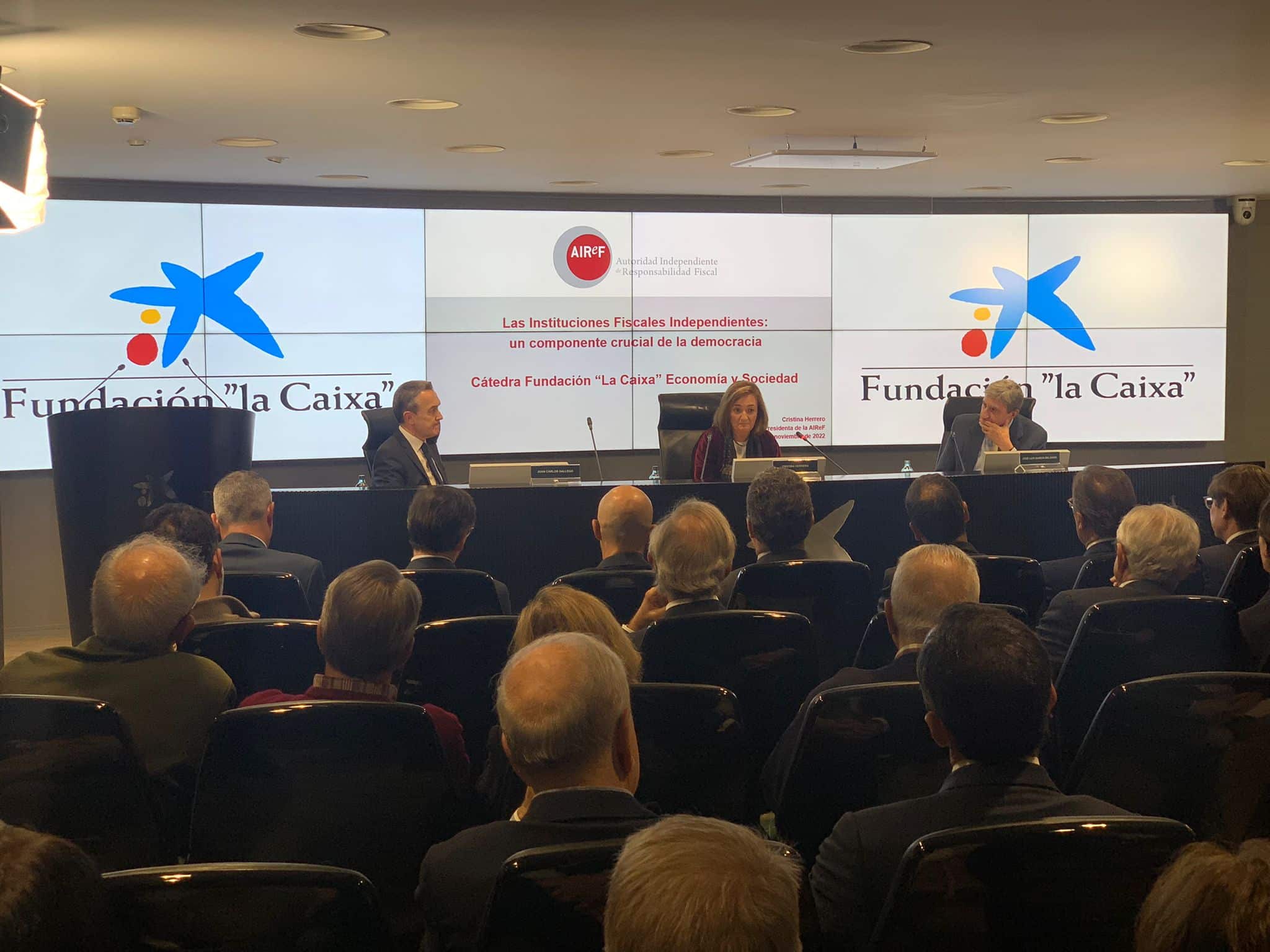
The President of the Independent Authority for Fiscal Responsibility (AIReF), Cristina Herrero, took part today in the “La Caixa” Foundation Chair in Economics and Society and highlighted the role that independent fiscal institutions such as AIReF will play in the new fiscal framework, if the proposal published by the Commission on November 9th comes to fruition.
Cristina Herrero began her speech by noting that the Stability and Growth Pact was created with the aim of ensuring that euro countries maintain their finances in order to guarantee the stability of the common currency. However, reforms were needed in 2005 and 2011 to try and address the shortcomings that became evident. The second reform involved, as a major new development, the promotion of fiscal institutions to ensure the sustainability of public finances.
In this context, AIReF was established in 2013 as a new institution in Spain due to its mandate and unique institutional features. A strong institution was selected in order to comply with EU requirements and in view of the special situation of Spanish finances resulting from the crisis.
As Cristina Herrero highlighted, AIReF ensures fiscal sustainability through fiscal monitoring and evaluation. It does so under the guiding principles that govern all its activities: independence, transparency and accountability. AIReF performs its functions by issuing reports in which it oversees all levels of government throughout the budget cycle, studies commissioned ad hoc by the administrations and opinions mandated by law or prepared on its own initiative.
The third reform of the Stability Pact, which has not yet been approved, is aimed at a different supervision model, with sustainability and growth as a priority and the strengthening of national budgetary frameworks. The Commission has already made a proposal in this direction which also consolidates and strengthens the role of institutions such as AIReF, which will cease to be mere supervisors and will take on analytical functions at an earlier stage.
The framework proposed by the Commission requires that high-debt countries like Spain draw up comprehensive medium-term plans reflecting the national commitment to a debt reduction path, which would be monitored annually. These plans should ensure that debt is placed on a downward path and that the deficit falls below 3% of GDP. Institutions such as AIReF would be responsible for assessing the plans ex ante and monitoring them ex post, which is a major challenge for them, since they would assume part of the Commission’s oversight functions.
Regardless of the future reform, Cristina Herrero highlighted the contribution of fiscal institutions to improving democratic quality with their independent and impartial analyses, making objective and rigorous information available to decision-makers and citizens.
In her opinion, independence is the main value of these institutions and their distinctive feature compared with other institutions involved in economic and budgetary analysis. However, as the President of AIReF acknowledged, this independence cannot be taken for granted and must be guaranteed and strengthened through the proper transparency and accountability.






